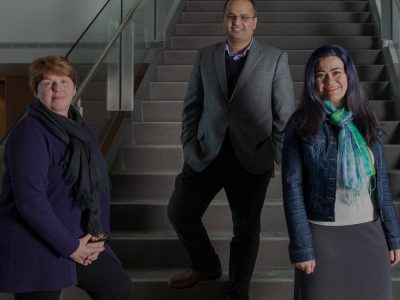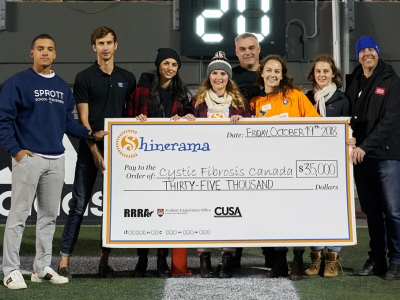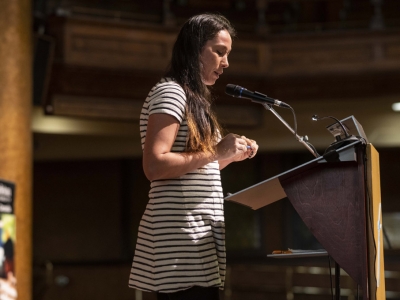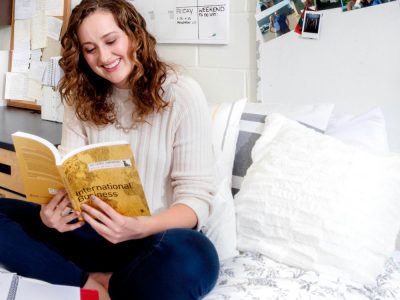By Dan Rubinstein
Photos by Fangliang Xu
The first day of a new job is always tough.
But when the gig is running a community radio station with four staff and 180 volunteers, and it’s six months into a global pandemic and you don’t have any access to your offices or studio, the challenge is even more pronounced.
“The organizing principle for everybody was always the physical space,” says Kwende Kefentse, who last September became the first executive director of CKCU, Canada’s oldest campus-based community radio station, headquartered on the fifth floor of Carleton’s University Centre.
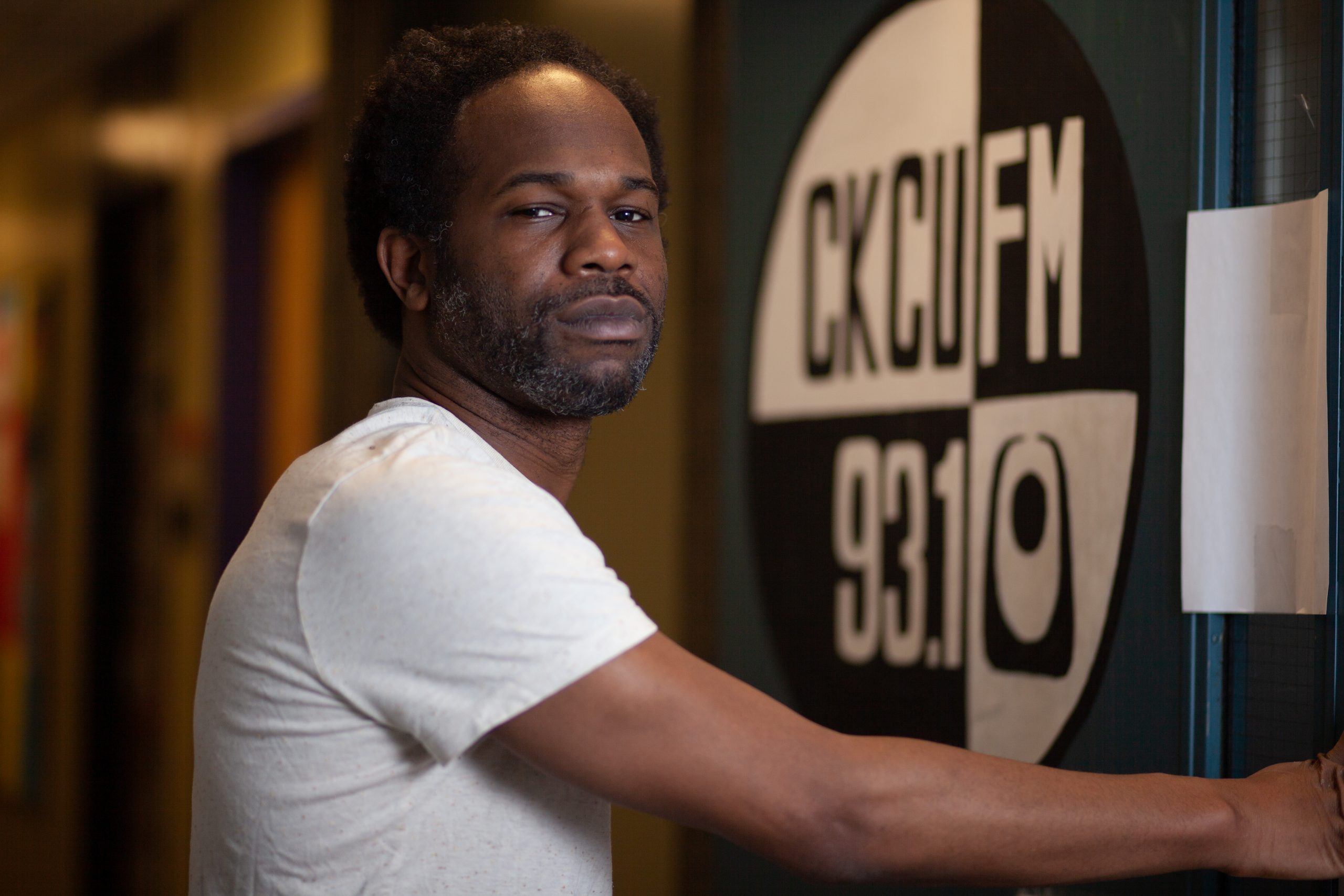
Kwende Kefentse
“Everybody came to the space and interacted with each other in the space, so COVID-19 caused a real crisis of identity. But we got past that by getting back to the core thing we do: producing and broadcasting content.”
With borrowed and patched-together equipment and a new system for sharing files, program hosts recorded episodes in makeshift home studios and the 24/7 show went on.
That allowed CKCU to continue what the station has been doing since 1975, something that aligns with Kefentse’s main mission in life, something that doesn’t necessarily need a physical space in today’s digital world—creating and connecting community through culture.
“This has been the most challenging professional thing I’ve ever done,” says Kefentse, a Carleton Bachelor of Arts graduate who is also a DJ, music promoter and record label head who spent 11 years as a cultural industries development officer with the City of Ottawa before leaving for the CKCU job.
“But it’s not just a COVID challenge or a technical challenge. It’s a cultural change. When you’re an organization that’s been around as long as we have and the leadership and approach have always been oriented around where we started, we need to shift that to where we’re going.”
Kefentse hosted CKCU shows when he was a Carleton student, an experience that informs his vision for the station. But he’s also drawing on the master’s degree he earned at University College London’s Bartlett School of Architecture, focusing on the configuration of urban cultural production networks and creative scenes.
“It’s a fascinating time to be thinking about new informatic and media structures and connections in a place that’s growing,” he says. “For the longest time, CKCU was held together by intuition and tradition. It was almost like a startup, but with 45 years of archives, documents, history. Which is part of what makes it really interesting and gives us so much potential.”
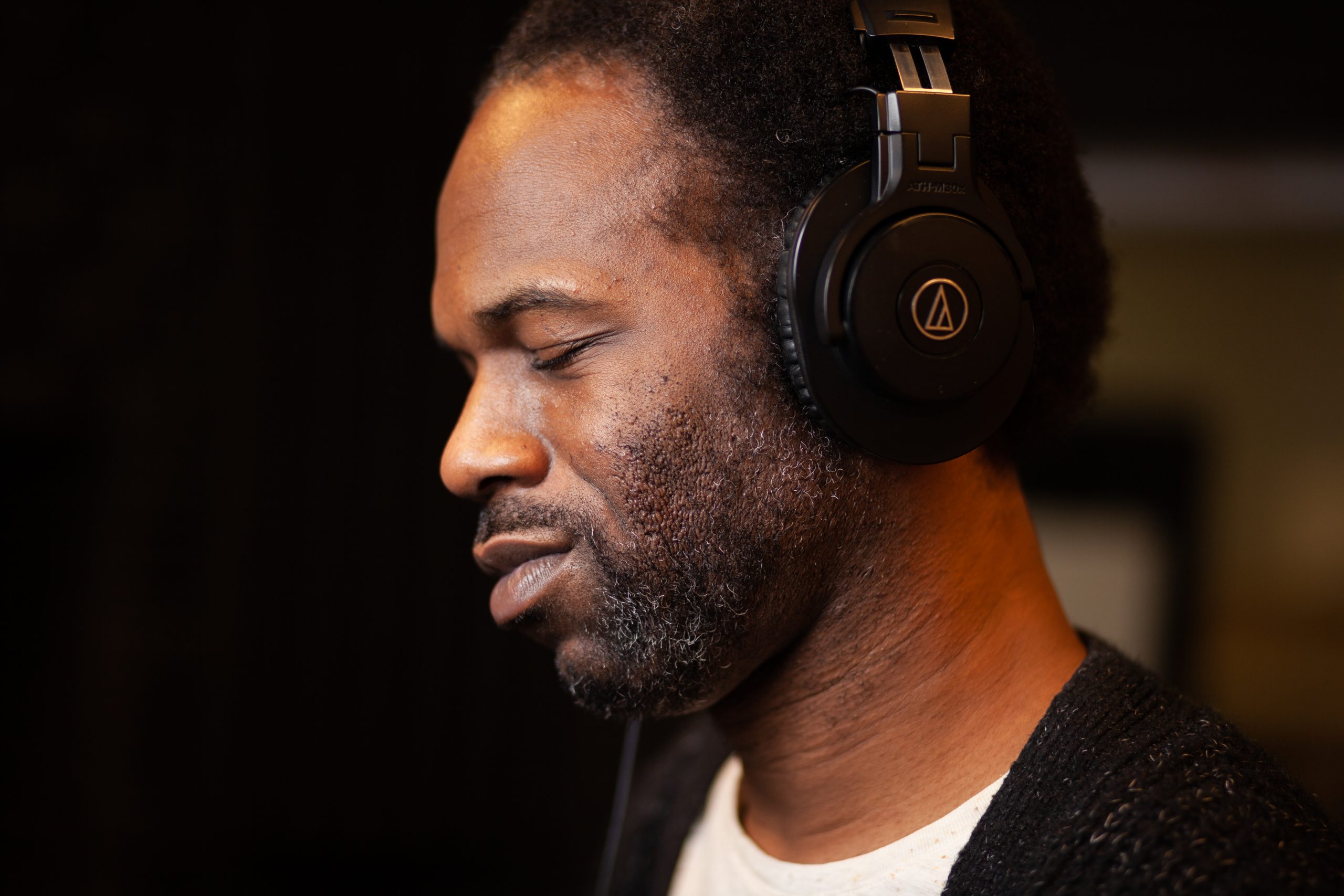
Pivotal Moment
The differences between working for a free-flowing cultural non-profit like CKCU and the buttoned-up, bureaucratic world of city hall are stark, but Kefentse can’t imagine going back to his former life.
CKCU is an important local institution at a pivotal point in its evolution. Its operations span five different sectors, according to Kefentse: it’s a source of information and entertainment that serves new Canadians and other marginalized communities; it’s rooted at Carleton and in the post-secondary realm; it’s a content producer, from music to news and public interest programming; it’s part of the music industry; and it’s a charity.
“I look at broadcasting as medium agnostic,” says Kefentse, noting that CKCU came of age in the 1980s and 1990s, an era when “radio was the Internet.
“But what makes us special is our local presence,” he continues, “and ultimately, that localized scale really matters. We’re not just shouting at the world. We’re more defined.
“Although you can listen to us anywhere online, we’re mostly connecting to Ottawa and the many communities that make up this city.”
Ottawa, he adds, is at an interesting juncture in its growth and demographics. And at time when media voices are increasingly globalized and generic, a station like CKCU has an opportunity, as a nexus of mainstream and emerging cultures, to provide audiences with something that commercial radio can’t offer.
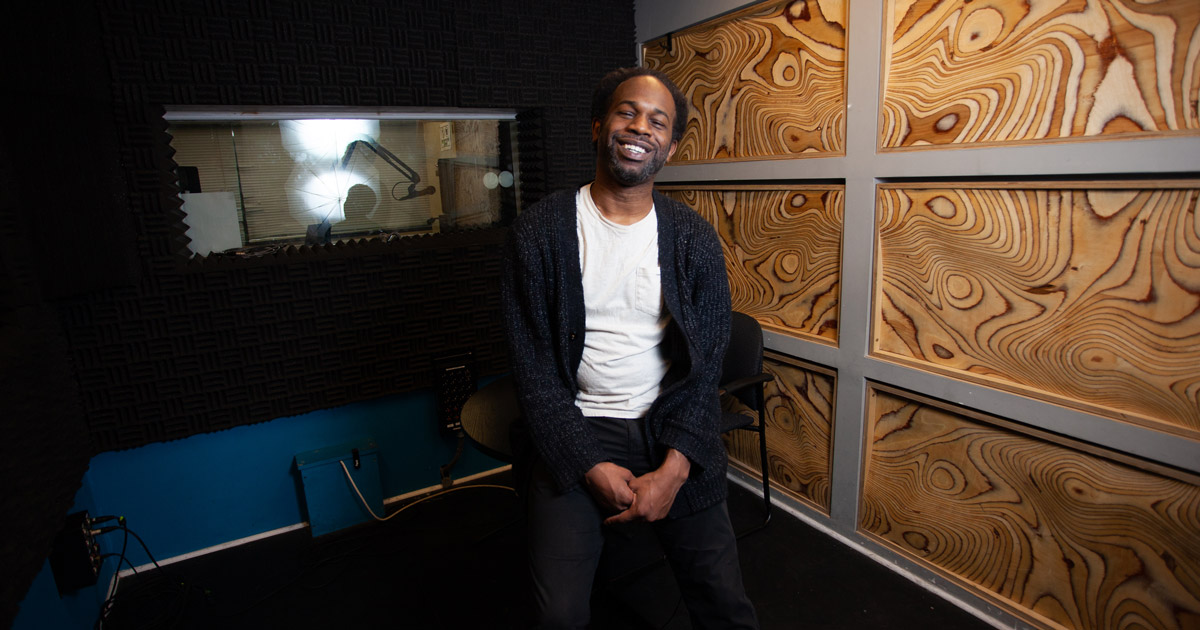
Reaching Diverse Communities
One of CKCU’s strengths is its diversity. In addition to covering myriad musical genres, the station’s dozens of volunteer hosts broadcast in a long list of languages, reaching many of Ottawa’s cultural communities, including First Nations, Inuit, East Indian, Somali, Vietnamese and Haitian populations.
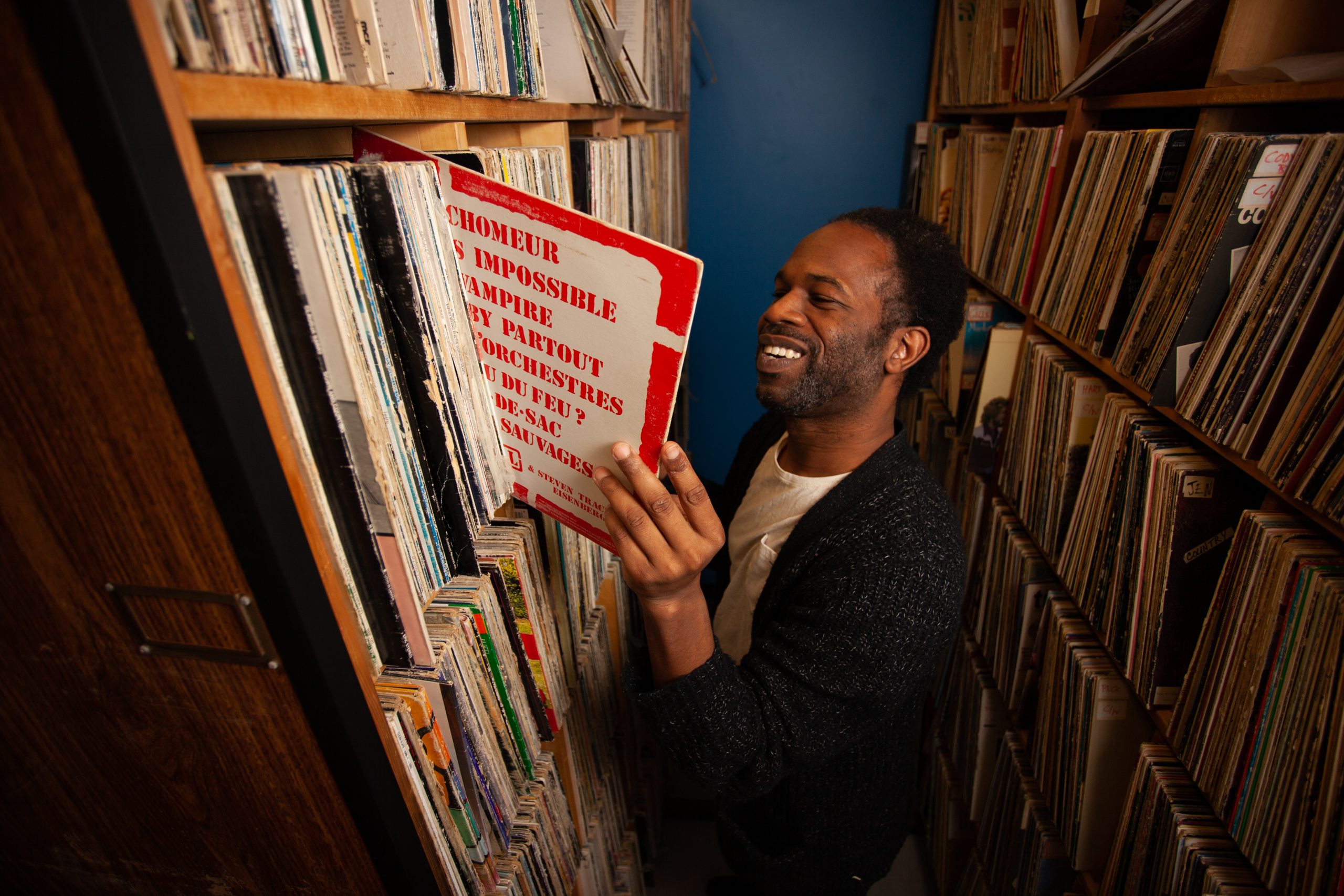
Kefentse is not only moving to make the CKCU board of directors and decision-making apparatus more reflective of this diversity, he’s also trying to better understand the station’s relationships with the city’s multicultural web.
“We’re in a great position,” he says. “We already have these communities around our table. We just have to figure out how to talk to them more effectively.”
“Just hearing all these languages on the air isn’t enough. We need to speak to people where they are, about issues and ideas that matter to them.”
CKCU gets a large percentage of its financial support from an annual funding drive. A student levy also provides support. Establishing meaningful connections to listeners and students is the key to maintaining this system.
Amongst his outreach, Kefentse is talking to several Carleton groups, from the Master of Philanthropy and Nonprofit Leadership program and the Nicol Building’s new all-faculty Innovation Hub to the Music and Journalism departments, looking for ways to collaborate.
“We’re a real-world challenge,” he says, “and that’s exactly what all of these talented young students who are thinking about the future are trying to solve.”
